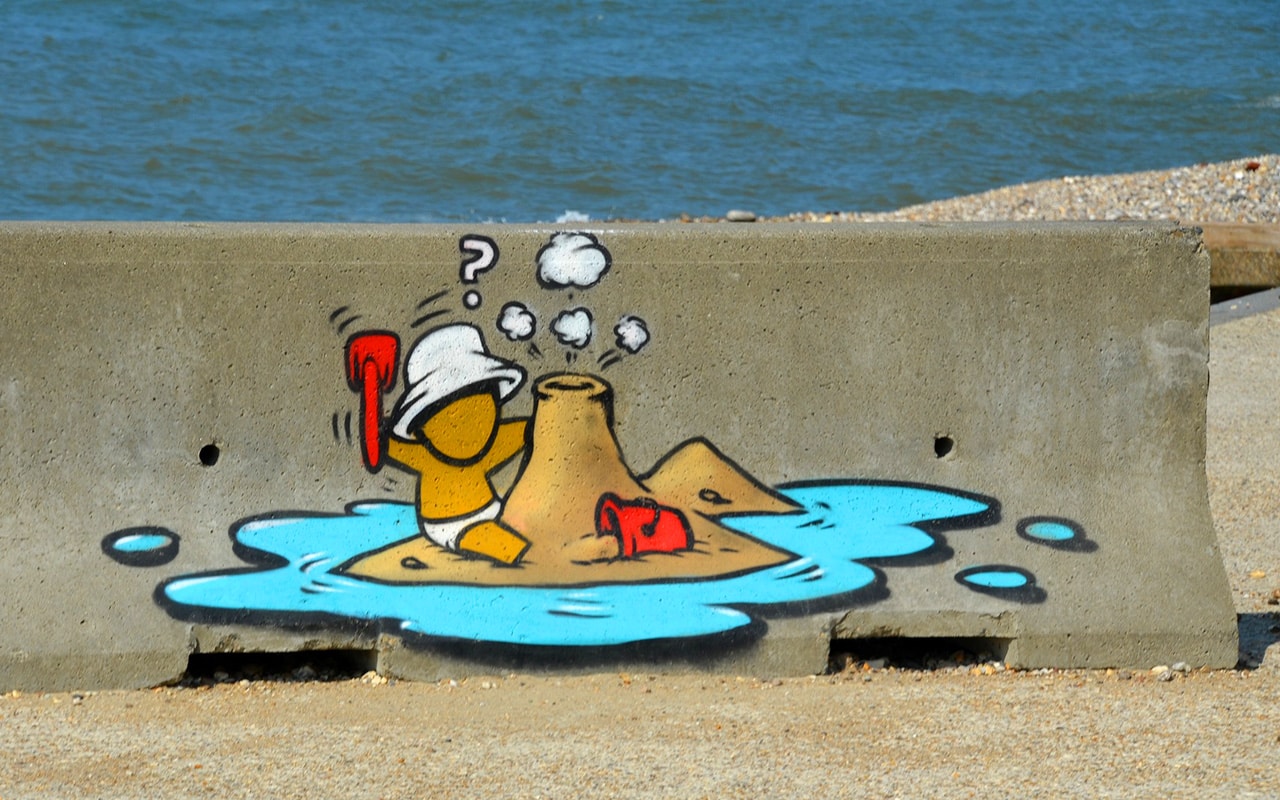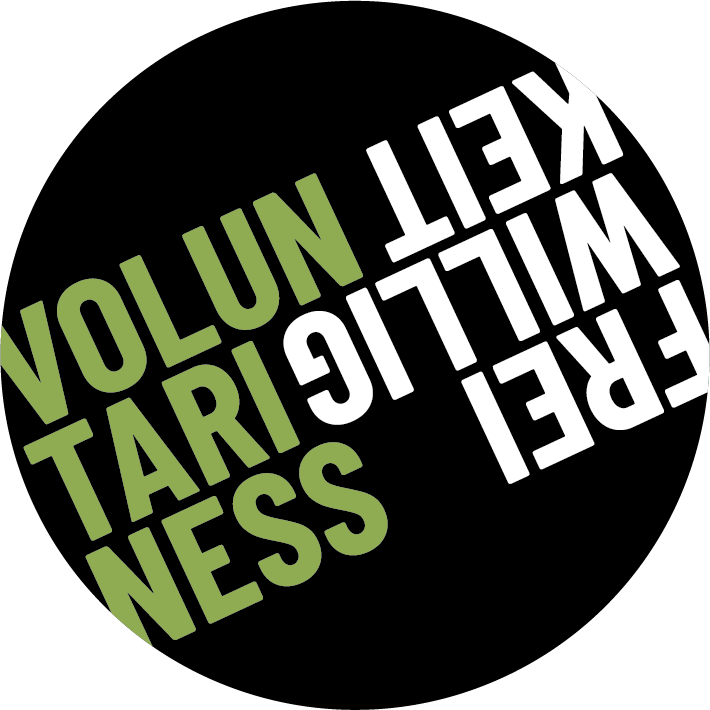

Philipp Schink is a philosopher at the Carl-von-Ossietzky University of Oldenburg.
Castles of Sand? On the Significance of Voluntary Cooperation to a Good Society
I would like to recall a train of thought that can be found in both the anarchist and liberal traditions, one that emphasizes the importance of voluntary cooperation to a good society and has an unambiguously state-critical or at least state-limiting orientation. This line of reasoning is of interest in the present context not so much because of its possible political implications, but because it both offers insights into practices of voluntary cooperation and puts forward a proposal regarding the specific significance of uncoerced modes of action and interactions. It furnishes us with a basis for insights of more general validity. Furthermore, when it comes to the neoliberal wastelands left behind by the retreat of the welfare state since the 1980s, this line of thought offers additional critical resources. The assumption that, after the state colonization of cooperative practices, societies could be governed by transferring to individuals the responsibility for social services that can only ever be guaranteed by cooperation between many actors, is problematic, and not only because of the diminished legal rights to these benefits. In fact, these social services simply cannot be provided because they themselves depend on a web of cooperative practices that cannot arise or be instituted spontaneously.
Voluntary Cooperative Practices and the State Penetration of Social Relations
The train of thought with which we are concerned here goes something like this:
Enter community. Let us suppose that a good society is characterized by those within it cooperating voluntarily in ways that promote the common good. “Communities” are conceived here primarily as contexts of cooperative practices, while cooperative beliefs and views are effects of these practices. Interactions, this line of reasoning continues, cannot be analyzed or explained as an aggregation of selfish motivations, that is, individual cooperative practices or routines always clash with some of the cooperators’ strictly selfish interests. Such “altruistic” cooperative practices exist for reasons of necessity and can be explained by adopting a “social point of view”: without participation in such cooperative practices, certain social goods and services cannot exist. Participation is, moreover, to all intents and purposes secured by the mixture of praise and admonition that characterizes the low-threshold social sanctions typical of relatively small communities. Individual community members thus grow into ownership of cooperative practices through their participation in them. Voluntariness is understood as the absence of state coercion, but in no way implies that actors are not subject to the influence of others or that they can always act according to their own desires.
Exit community, enter state. What happens to the social fabric of cooperative practices when their functions are taken over by state institutions, that is, when the state provides the social goods and services? And what does the state penetration of social relations mean from a critique-of-domination perspective? The takeover of such services by the state, this line of thought continues, leads to a degeneration of social or altruistic modes of cooperation and thus attitudes. Dwindling cooperative attitudes result in erosion of the willingness to guarantee social services through taxation. This, in turn, means that in the short term, overt state coercion is exercised more vigorously, while in the long term the state provides fewer social services. In the meantime, however, the social relations, modes of action, and routines of voluntary cooperation have been worn down to such an extent by the state’s “takeover of services” that they can no longer make up for the state’s withdrawal. States, to get to the nub of this line of thought, undermine their own foundations, thus extending their power ever further. They hijack social modes of cooperation, replacing them and thus undermining the existence of “pro-social or altruistic attitudes.”
The Waning of Voluntariness?
With respect to voluntariness, I would like to highlight two aspects of this line of thought. First, it assumes that willingness to cooperate depends on people actually cooperating. It is interesting to note that motivations and beliefs are explained here as effects of action routines—they are not prior to them. Moreover, they depend on the continued existence of these routines. The virtue ethical assumption that actors acquire stable ethical dispositions that enable them to act altruistically in a given case regardless of whether or not cooperative practices exist, is contested from this perspective. Seen in this light, there is no altruistic motivation without altruistic practice.
The second point consists in the specific explanation given for the significance of voluntariness. Voluntary cooperation is regarded as instrumentally necessary to create good social conditions, that is, voluntariness has an instrumental value. Without voluntary cooperation, there can be noservices tailored to thecommon good—especially not in the long run. Central to this line of thought is a notion that runs fundamentally counter to the assumption that only state-guaranteed legal claims can place certain social services on a permanent footing, namely that only cooperation free of state coercion can guarantee social services in the long run. Coercion, as we must understand this train of thought, crowds out other motivations. If one is forced to act in a specific way, then one’s motivation at least partly consists in avoiding the threatened sanction; it no longer (or no longer exclusively) consists in acting altruistically. Particularly in combination with the fact that the state provision of social services replaces and dissolves practices of voluntary cooperation, in the long run this leads to the dwindling of altruistic attitudes.

Of course, a certain skepticism is in order when interpreting this line of thought historically. Prior to the increasing penetration of the social fabric by state action, the world certainly did not consist solely of wonderful cooperative relations. Of course, we might also ask whether the takeover of services by the state always has undermining effects on cooperation, or whether this only occurs under conditions such as those of a capitalism that dissolves social networks. But the train of thought at issue here does provide an astute alternative to the idea that the enforcement of statehood was not a project of domination aimed at establishing relations of control. This line of thought also provides a counterpoint to appeals to the intrinsic value of voluntariness that are, unfortunately, a common feature of the present-day debate, for example with regard to the introduction of quotas or speed limits on highways. Here the reference to voluntariness is essentially a means of warding off moral demands. In line with this, we can often recognize these appeals as pitiful attempts to lend an air of nobility to one’s own asocial conduct. In contrast, the line of thought presented here emphasizes the importance of voluntary cooperative practices to services tailored to the common good and altruistic attitudes.
But does all this mean that adherents of this line of thought would welcome the dismantling of the security and benefits provided by welfarist systems, which all former Western welfare states have experienced since the neoliberal attacks of the 1980s and beyond? No, of course not. Their assumption, after all, is that the expansion of state domination induces the degeneration and withering away of voluntary cooperative modes of action. Such cooperative practices cannot simply be reinstated. We might think of a sandcastle assailed by a rising tide. When it has washed against the beach three or four times, all that remains is a featureless stretch of sand.
Reading suggestions by Philipp: Silke van Dyk/Tine Haubner, Community-Kapitalismus, Hamburg 2021; Peter Kropotkin, Gegenseitige Hilfe in der Tier- und Menschenwelt, Berlin 2018; James C. Scott, Seeing like a State, New Haven 1998; Michael Taylor, Community, Anarchy & Liberty, Cambridge 1982.
Suggested Citation: Schink, Philipp: “Castles of Sand? On the Significance of Voluntary Cooperation to a Good Society”, Voluntariness: History – Society – Theory, February 2023, https://www.voluntariness.org/castles-of-sand/.





